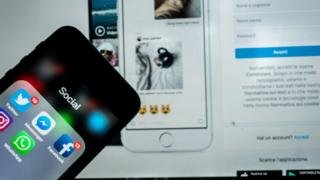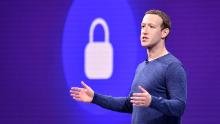Family of apps, WhatApp, Instagram and Messenger — appear to be recovering from most severe outage ever around the world. Company spokesman says it is not a cyber attack
 A partial Facebook outage affecting users around the world has stretched beyond 14 hours, but was showing some signs of ending early Thursday. It’s believed to be the biggest interruption ever suffered by the social network.
A partial Facebook outage affecting users around the world has stretched beyond 14 hours, but was showing some signs of ending early Thursday. It’s believed to be the biggest interruption ever suffered by the social network.
Facebook (FB), the world’s largest social network, had to turn to its rival Twitter (TWTR) to explain that its group of hugely popular apps were having difficulties.
Some users of Facebook and other platforms owned by the tech giant — including Instagram, Messenger and WhatsApp — reported intermittent problems accessing the services and posting content.
The outage appeared to be abating early Thursday. At 12:41 a.m. ET, Instagram posted a tweetthat said, “Anddddd… we’re back” with a gif of Oprah Winfrey.
Instead of selfies and status updates, many Facebook users got an error message during the outage that said: “Sorry, something went wrong. We’re working on getting this fixed as fast as we can.”
The lengthy disruption is likely to upset advertisers that spend large amounts of money to reach potential customers on Facebook platforms. The company’s flagship social network has more than 2.3 billion users, and Instagram has more than 1 billion.
People went on Twitter to vent their frustration about the problems. The hashtag #FacebookDown and #InstagramDown were trending on Twitter for much of the day.
People used the tags to post memes about the outage, speculate about its cause and trade tips for how to survive without the company’s apps. Twitter even made the subject into a Twitter Moment.
The outages began Wednesday afternoon ET and appeared to affect people in multiple regions, including the United States, Central and South America and Europe, according to tweets and the outage-tracking site DownDetector.com. Users in Asia were having problems on Thursday morning.
“We’re aware that some people are currently having trouble accessing the Facebook family of apps. We’re working to resolve the issue as soon as possible,” Facebook tweeted around 2pm ET.
Despite some early online rumours that the outages were the result of a distributed denial-of-service (DDos) attack — a type of hack in which attackers flood a company’s network — Facebook said in another tweet that “the issue is not related to a DDoS attack.”
That second tweet was posted around 3pm ET. Beyond Instagram’s tweet, Facebook has provided no further updates in the hours since then.
The last time Facebook had a disruption of this magnitude was in 2008, when the site had 150m users – compared with around 2.3bn monthly users today.
The problems began yesterday afternoon, and only showed real signs of recovery this morning. They meant core platforms many people rely on every day to communicate were rendered mostly useless.
“We’re aware that some people are currently having trouble accessing the Facebook family of apps,” Facebook said in a statement.
“We’re working to resolve the issue as soon as possible.”

In response to rumours posted on other social networks, the company said the outages were not a result of a Distributed Denial of Service attack, known as DDoS – a type of cyber-attack that involves flooding a target service with extremely high volumes of traffic.
An NBC News broadcaster reported the cause was related to “overloaded” databases.
How widespread was the problem?
Estimates suggest the issue began around 16:00 GMT on Wednesday.
While Facebook’s main service appeared to load, users reported not being able to post.
Facebook’s apps seemed to be recovering on Thursday morning, with Instagram announcing it was back. Those on Instagram were not able to refresh feeds or post new material. Facebook Messenger’s desktop version did not load – but the mobile app appeared to allow the sending of some messages; however, users reported glitches with other kinds of content, such as images. WhatsApp, Facebook’s other messaging app, had similar problems.
A third-party outage map suggested the problem was global – DownDetector monitors posts on other social networks for users mentioning a loss of service elsewhere.
The issue also affected Facebook Workplace, the service used by businesses to communicate internally.
Buenos Aires-based designer Rebecca Brooker told the BBC the interruption was having a significant impact on her firm’s work.
“Facebook for personal use is fine – but what happens when we rely on large companies such as this to provide business services?” she said.
“I’m trying to communicate with my team in New York. Facebook Workplace is our only channel for [communication] with the exception of email.”
In the UK, an NHS paediatric consultant told the BBC how staff were upset not to be kept updated on a party being held for a beloved nurse who was retiring after 20 years.
“Being a working day most consultants could not make it,” said Dr Nikhil Ganjoo. “So I represented them – but was unable to share the retirement party pics with them as it happened.”
The outage occurred against a political backdrop of legislators in the US and beyond considering whether large technology firms – not just Facebook – should be broken up.
Elizabeth Warren, who is hoping to be the Democratic candidate in the next US presidential election, told the New York Times: “We need to stop this generation of big tech companies from throwing around their political power to shape the rules in their favour and throwing around their economic power to snuff out or buy up every potential competitor.”
On Wednesday’s issue, Ms Brooker added on Twitter: “Look at what happens when we let one company control everything.
“I figured this could happen eventually but it’s extremely crippling to be part of this monopoly.”

The High Asia Herald is a member of High Asia Media Group — a window to High Asia and Central Asia
